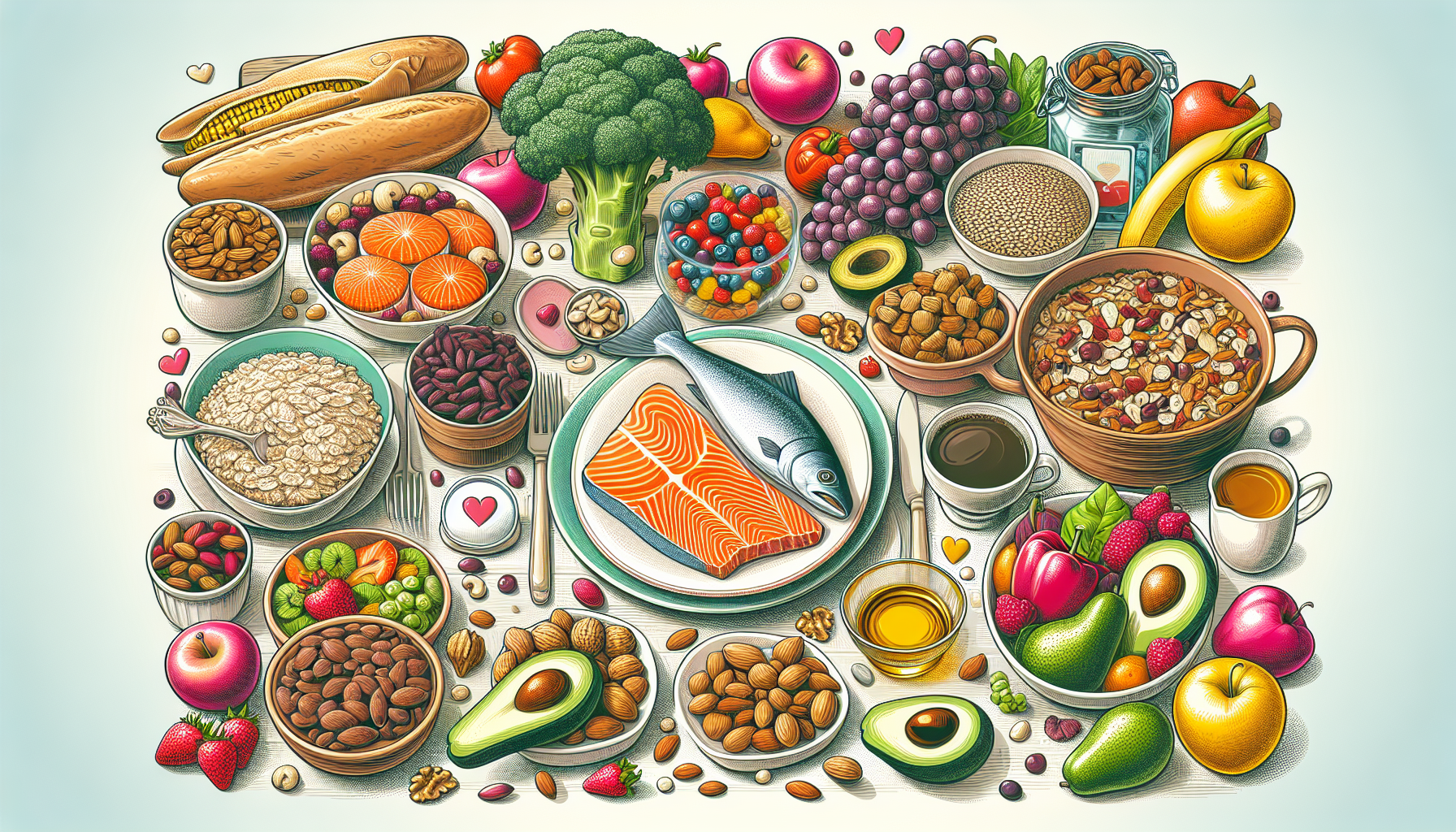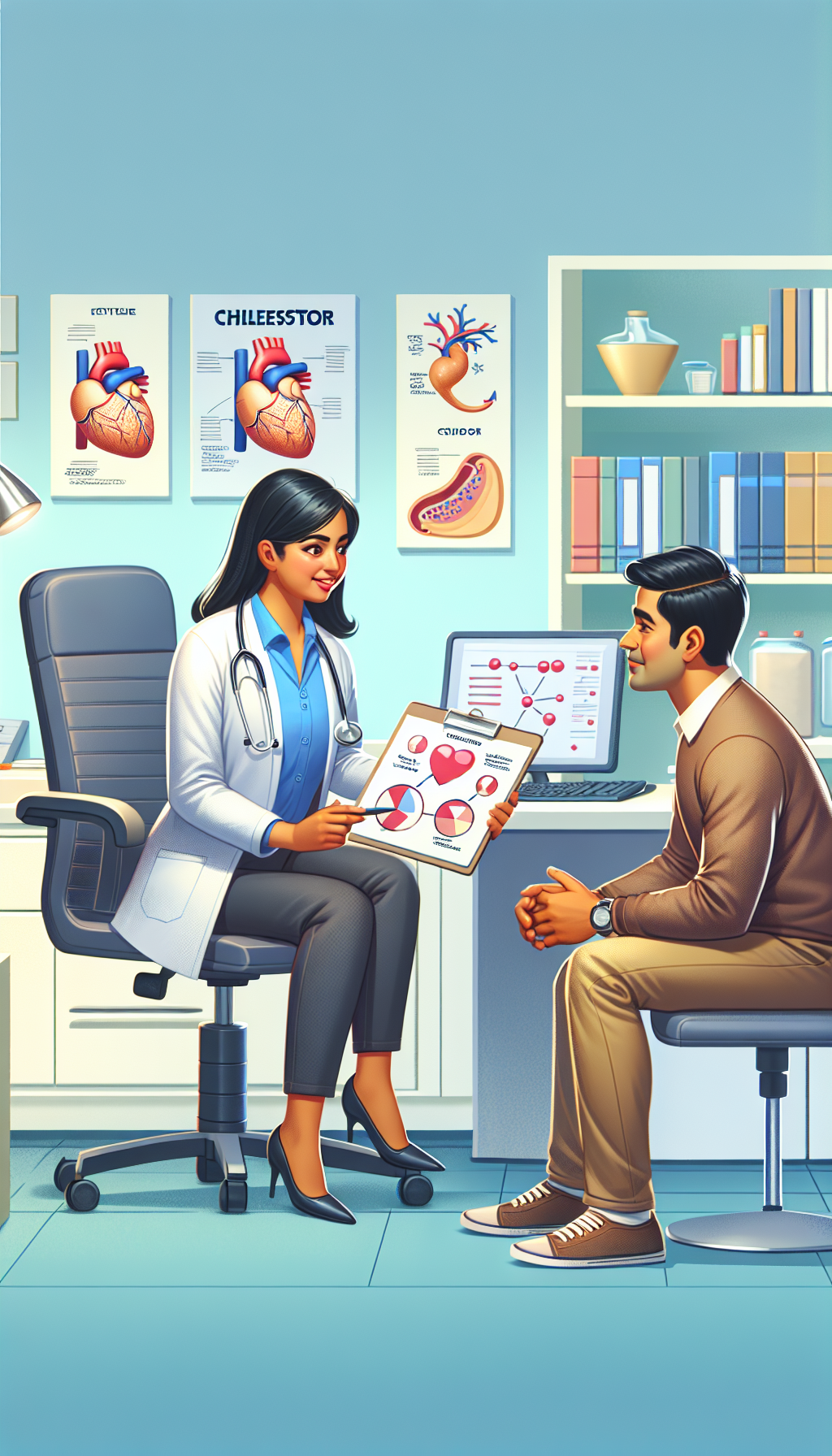High cholesterol is a major risk factor for heart disease and stroke, two leading causes of death worldwide. While medications like statins can help manage cholesterol levels, many individuals are seeking ways to reduce cholesterol naturally. This comprehensive guide will outline strategies to lower cholesterol without relying on medication, emphasizing lifestyle changes and natural remedies.
Understanding Cholesterol and Its Impact on Health
Cholesterol is a waxy substance found in your blood. Your body needs cholesterol to build healthy cells, but high levels of cholesterol can lead to the development of fatty deposits in your blood vessels. These deposits can grow, causing difficulties for blood to flow through your arteries, and eventually, these deposits can break suddenly and form a clot that causes a heart attack or stroke.
For further understanding of how cholesterol affects cardiovascular health, it’s essential to recognize the difference between LDL (low-density lipoprotein) and HDL (high-density lipoprotein). LDL is often referred to as "bad" cholesterol, which transports cholesterol particles throughout your body and can build up in the walls of your arteries. HDL, known as "good" cholesterol, picks up excess cholesterol and takes it back to your liver.
Dietary Changes to Lower Cholesterol
One of the most effective ways to manage cholesterol is through diet. Here are some foods and dietary patterns that can help lower cholesterol levels:
-
Fruits and Vegetables: Rich in dietary fiber and antioxidants, fruits and vegetables can help reduce cholesterol levels. A diet high in fiber can help reduce the absorption of cholesterol into your bloodstream.
-
Whole Grains: Foods like oatmeal, whole wheat bread, and brown rice contain soluble fiber, which has been shown to reduce LDL cholesterol.
-
Nuts and Seeds: Certain nuts like almonds and walnuts are not only rich in heart-healthy fats but also contain fibers that help lower cholesterol.
-
Legumes: Beans, lentils, and other legumes are high in fiber, minerals, and proteins. They’re a great meat substitute and can play a role in lowering LDL cholesterol.
-
Fatty Fish: Fish like salmon and mackerel are high in omega-3 fatty acids, which can reduce blood pressure and the risk of developing blood clots. In people who have already had heart attacks, omega-3 fatty acids may reduce the risk of sudden death.
For more insights on diet’s impact on recovery from cardiac disease, consider reading "Evaluating the Role of Diet in Cardiac Disease Recovery".
Physical Activity for Cholesterol Management
Regular exercise can help improve cholesterol levels. Moderate physical activity can help raise HDL cholesterol, the "good" cholesterol. With your doctor’s OK, work up to at least 30 minutes of exercise five times a week or vigorous aerobic activity for 20 minutes three times a week.
Maintaining a healthy weight can also help control cholesterol and lower the risk of heart disease and stroke. If you are overweight, losing even a small amount of weight can help lower LDL cholesterol. For more information on this, the article "Maximizing Cardiac Health with High-Intensity Interval Training" is an excellent resource.
Lifestyle Modifications
-
Quit Smoking: Quitting smoking improves your HDL cholesterol level. The benefits occur quickly: Within 20 minutes of quitting, your blood pressure and heart rate recover from the cigarette-induced spike.
-
Limit Alcohol: Drinking too much alcohol can lead to serious health problems, including high blood pressure, heart failure, and strokes.
-
Reduce Stress: Chronic stress may contribute to higher cholesterol levels. For strategies to manage stress, explore "Linking Mental Health and Heart Health for a Holistic Approach".
Alternative Therapies
Some have turned to alternative therapies to help lower cholesterol:
-
Plant Sterols and Stanols: These substances, found in plants, help block the absorption of cholesterol. They are added to some foods and are also available as supplements.
-
Supplements: Some people use supplements to help lower cholesterol, such as fish oil, psyllium husk, and green tea extract. However, supplements should be used with caution and under a healthcare provider’s supervision.
External Resources for Cholesterol Management
For additional niche resources on managing cholesterol, consider the following:
-
The American Heart Association provides guidelines and recommendations for cardiovascular health, including managing cholesterol levels. You can access their resources here.
-
The National Heart, Lung, and Blood Institute also offers a comprehensive set of tools and information for cholesterol management here.
-
For those interested in the scientific mechanisms of cholesterol metabolism and its effects on the body, the National Library of Medicine has a wealth of published studies and articles available here.
Conclusion
Reducing cholesterol without medication is a realistic goal for many. Through a combination of dietary changes, physical activity, lifestyle adjustments, and, in some cases, alternative therapies, you can successfully manage your cholesterol levels and reduce your risk of heart disease. Always consult with a healthcare provider before making significant changes to your health regimen, especially if you have existing health conditions or are on medication.
Remember, the journey to lower cholesterol is a marathon, not a sprint. It requires a commitment to a healthier lifestyle and the willingness to make changes that may not only lower cholesterol but also improve overall health and wellbeing.



